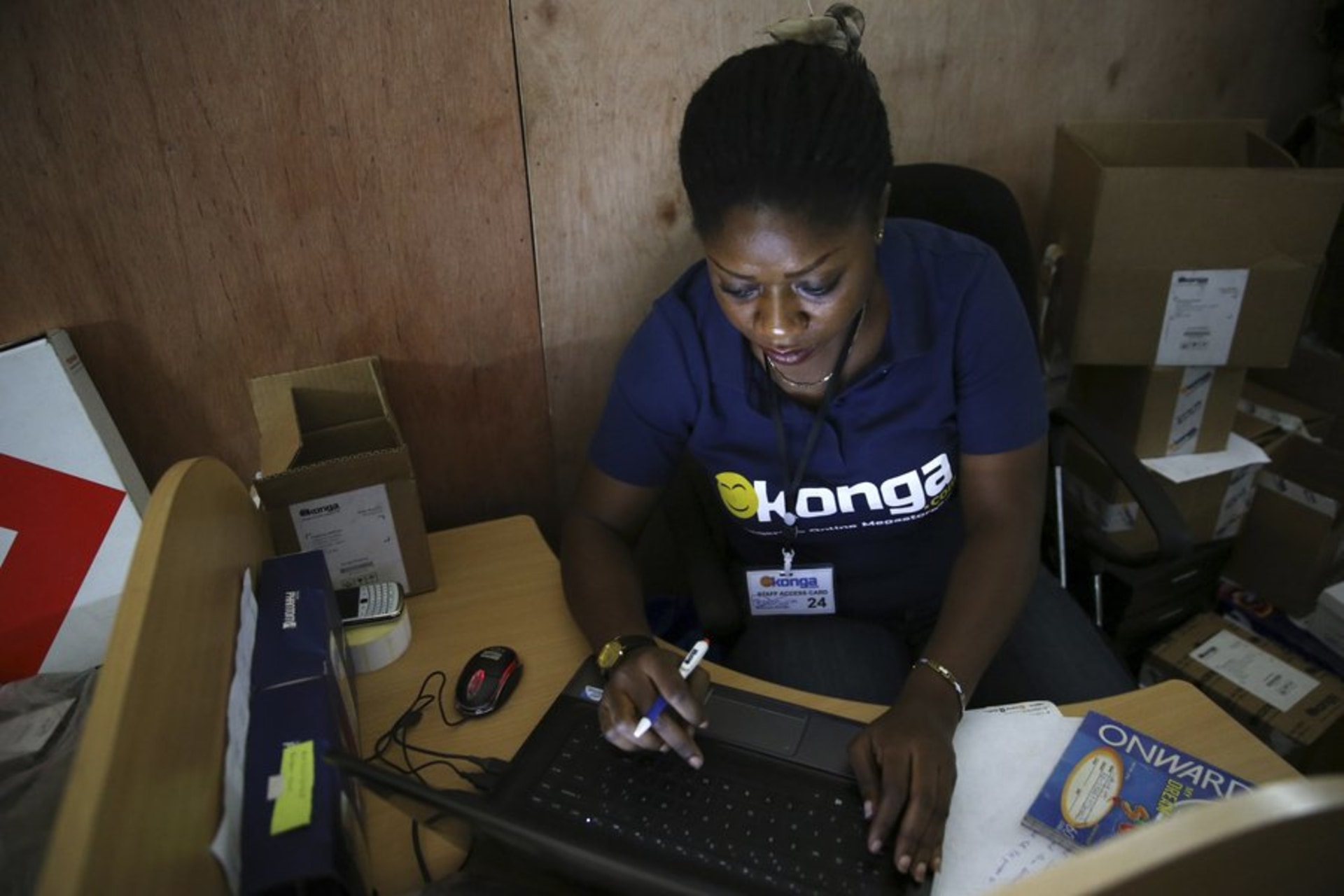The Robots are Coming, but We’ll Still Have a Global Digital Underclass
Dr. Mary Gray revealed the hidden realities of the overlooked and undervalued workers driving our economy through their labor—what Gray calls “ghost work.”
Originally published at CFR Net Politics

By experts and staff
- Published
Experts
![]() By Catherine PowellAdjunct Senior Fellow for Women and Foreign Policy
By Catherine PowellAdjunct Senior Fellow for Women and Foreign Policy
This post was originally published on CFR’s Net Politics blog.
When Amazon founder Jeff Bezos launched into space on June 20 for eleven minutes, he was momentarily no longer the richest man on the planet. Currently valued at $1.8 trillion, Amazon raked in $386 billion in revenues in 2020—a year in which COVID-19 lockdowns caused Amazon’s fortunes to soar—with the company shipping a few million packages per day. Meanwhile, as the New York Times revealed in a startling expose, the conditions at Amazon’s JFK8, the company’s only fulfillment center in the Big Apple, are less than stellar. Even less visible than these workers (who ensure Amazon Prime customers’ orders are fulfilled with quick turn-arounds) are the people engaged in “ghost work” who manage and clean up data to feed to training algorithms, which support e-commerce and our broader digital economy.
Indeed, inequalities have become increasingly stark along the digital global assembly line as the pandemic forced many of us to move to remote work and education, as well as shift much of our commerce online. Thus, I knew it was time to host a roundtable with MacArthur Foundation “Genius” Fellow Dr. Mary L. Gray, senior principal researcher at Microsoft and coauthor with Siddharth Suri of Ghost Work: How to Stop Silicon Valley from Building a New Global Underclass. Through our conversation, Dr. Gray brilliantly revealed the hidden realities of the overlooked and undervalued workers driving our economy through their labor—what Gray calls “ghost work.”
Gray tells us that ghost work refers to “not the work itself, but the work conditions; when people’s value in that moment…is erased from most people’s line of sight, the consumer never sees that person.” From labeling data to transcribing audio to content moderation, ghost work happens when tech companies assign tasks to an unseen and unacknowledged workforce (that has few, if any, labor protections), rather than full time workers.
Ghost work has thrived as tech companies outsource labor around the world in order to reduce costs. The global competition for jobs has created a “race to the bottom” in the digital workforce (as in other sectors)—which Sarah T. Roberts, author of Behind the Screen: Content Moderation in the Shadows of Social Media, and I discussed in a 2019 roundtable. Roberts described how workers in Iowa compete with those in India for jobs, driving down wages and working conditions in an effort to attract capital, investment, and jobs.
Ghost work ostensibly provides flexibility to workers. Women are disproportionately expected to cover childcare responsibilities, which means that women are all too easily excluded from workplaces with rigid hours. For workers who are juggling work and family, especially female workers, task-based work may seem like a smart way to both generate income and optimize family time. But Gray warns that in far too many cases, this promise of flexibility is illusory. The instability inherent in task-based work means that workers must be constantly vigilant for the next opportunity in order to make ends meet.
In addition to the insecurity of not knowing where the next paycheck is coming from, task-based workers are not entitled to benefits such as health insurance and paid leave.. In fact, employers are not even required to provide a minimum wage since these workers are not formal employees. Moreover, some ghost work tasks, such as content moderation (which can involve screening social media for harmful and often violent content), can damage the mental health of workers without employer-based health insurance.
Competition among workers for income means there is always someone ready and willing to complete a task. As automation has grown during the Covid-19 pandemic, so too has ghost work. While fears about automation and artificial intelligence replacing entire jobs are absolutely warranted, Gray says when it comes to interpretive or irregular tasks such as content moderation, AI falls short without humans in the loop. In other words, we’re not going to be replaced by robots any time soon! As Gray notes, “With every technological development—we call this the paradox of automation’s last mile—you open up this field of needs that require human insights.” As a result, tech companies rely upon the task-based workforce to complete these jobs—which are only increasing along with the pandemic.
As I previously discussed in several op-eds, the COVID-19 pandemic has unmasked both race and gender structural inequalities in the labor force (including the digital workforce). The “Color of Covid” and “Gender of Covid,” two terms I coined, speak to the disparate effects of the COVID-19 pandemic on people of color and women. Black and Latinx workers employed in the booming gig economy are more likely to be in lower-wage, “essential” work with less flexibility than white workers who are more likely able to telecommute. Women are also disproportionately represented in the essential workforce that has kept the economy afloat during the pandemic. At the same time, both people of color and women have been hit more heavily with unemployment—illustrating economic racial and gender justice paradoxes. As ghost work proliferates (along with the rest of the gig economy), pay gap and other inequalities may worsen unless steps are taken to reverse poor wages and conditions.
To improve structural inequalities and conditions for workers employed in ghost work and the larger gig economy, the public and private sectors should work together—along with worker organizations—in order to find transnational solutions ensuring all workers, regardless of formal employment status, receive the benefits and legal protections they are due. According to Gray, we must reimagine a social contract that properly recognizes the value of workers providing essential but unseen services.
Gray argues that the problem is not with ghost work itself, but rather with larger society not valuing this labor. When a workforce is largely invisible to consumers, it becomes very difficult to ensure these workers are treated fairly. Supporting workers’ rights to organize rather than retaliating against solidarity efforts—as suggested by Instacart’s firing of workers who organized last year—is essential to protecting workers and disincentivizing employers from lowering wages by outsourcing labor. As Dr. Gray wisely puts it, we need to “stop making our lives wrap around work, and start making work serve our lives.”
